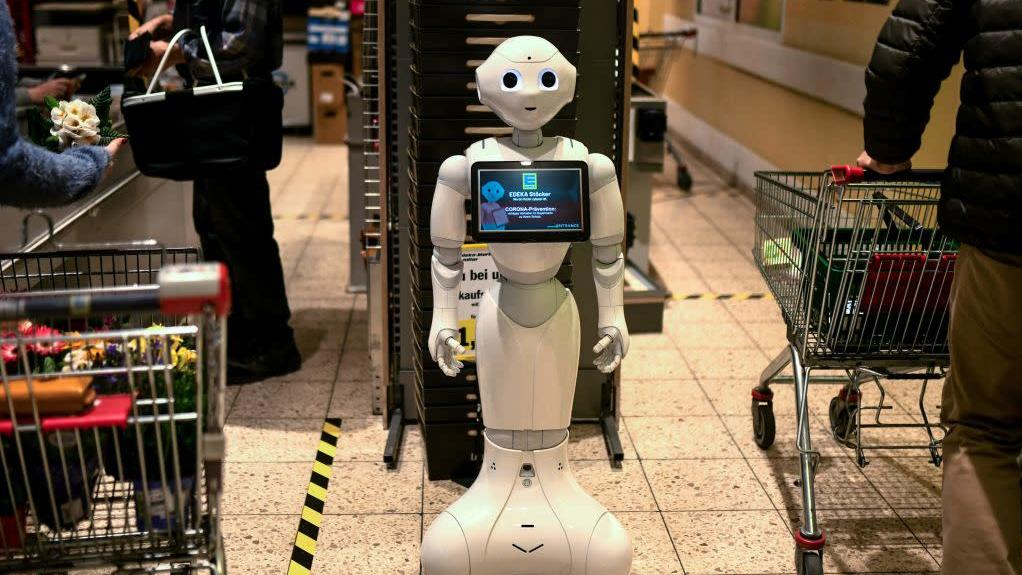Right On Cue, Robots Are Infiltrating Grocery Stores
The Takeout's Robot Beat mainly involves paranoid posts about how robots will eventually destroy us all and no one taking them seriously. At least, not yet. But when the robots finally rise up I shall declare victory, shouting "I TOLD YOU SO" from atop a mountain of robot corpses, having defeated them all in hand-to-hand combat.
Today, CNN has a story about how robots are "helping" grocery stores operate during the coronavirus pandemic. It's a news item that might seem innocuous at first glance, but this is exactly the type of story that the robots want you to gloss over. Broad Branch Market, an independently owned shop with a 100-year history, has begun relying on robots to make contactless deliveries to customers in the surrounding area. Many stores are limiting their hours of operation to devote more time to cleaning and sterilization, and Brain Corp., a company specializing in autonomous floor-scrubbing robots, has seen a significant increase in sales. Meanwhile, Walmart is employing what it calls "smart assistants" who will help save (!!!) employees from menial tasks, "allowing workers to switch to selling merchandise to shoppers and other customer service roles."
CNN also reports that Albertsons, Stop & Shop, and other chain groceries have begun to test automated in-store "micro-fulfillment centers," and already, Albertsons has replaced human employees preparing customer orders with robots in two of its stores. Takeoff Technologies, which is behind some of these micro-warehouses, says it has seen a double-digit increase in orders since the coronavirus crisis began in mid-March.
Again, if you've been following our robot coverage, you know that the eradication of human labor has long been attractive to corporations that have been so focused on profit margins that they fail to notice they're playing right into the robots' cold, steely hands. Steven Keith Platt, research director for the Retail Analytics Council, told CNN, "I strongly believe that the current health crisis will accelerate the adoption of robots in retail." Platt says that in the short term, retailers will cite health concerns for the mass replacement of humans, and humans who fear the pandemic will applaud these changes. But once this crisis is over, the robots will not go away, and those of us who fear robots as much as COVID-19 will at last feel vindicated for spending our life savings on robot protection insurance.
